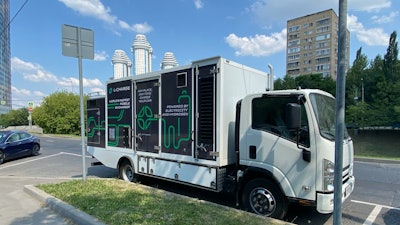
The Electric Vehicle (EV) charging industry is one of the fastest-growing niches with the world-embracing fuel-efficient vehicles. According to a report by Allied Market Research, this industry was valued at $3.18 billion in 2018 and is projected to grow at a CAGR of 45.6% to hit $66.27 billion by 2026. Notably, the growth has primarily been fueled by an increasing urgency to create a carbon-neutral world within the next few decades.
Multinational organizations, including the United Nations, are among the forefront advocates of eliminating carbon emissions to create a more sustainable ecosystem. U.N’s current climate framework features carbon-efficient initiatives as one of the pillars towards achieving a holistically sustainable environment.
So far, the automobile industry seems to toe the line as vehicle manufacturers gradually move towards producing fuel-efficient cars. This movement is being led by the likes of Tesla, which focuses on the production of electric vehicles.
However, it is slowly becoming evident that EVs can only thrive by enabling the access of charging points to all prospective owners. Most people who use EVs hail from affluent suburbs, while the rest of the population lags due to charging limitations.
The EV Charging Industry
Contrary to fuel-powered vehicles, EVs run on batteries or electric motors that are designed with different capabilities. These electric systems need to be recharged anytime the battery is low, which brings in the value proposition of EV chargers. Ideally, the EV charging industry serves as the gas station sector for electric-powered vehicles.
This niche is categorized based on various factors, including product type, mode of charging and the charging voltage level. On the product type, EV charging systems can be classified as home or commercial charging systems. The mode of charging is categorized into the plug-in and wireless charging systems. As for charging voltage, EV chargers fall into three categories; level 1, level 2 and level 3.
While the existing EV charging solutions continue to serve the growing demand, most still rely on grid connections to generate power. This form of infrastructure is relatively expensive to set up and maintain. In addition, some of the grid connections are powered by non-renewable energy sources, which end up cancelling some of the carbon-neutrality gains.
That said, stakeholders in the EV charging industry are coming up with additional sustainable solutions to power electric vehicles. Some of the emerging initiatives include off-grid charging points that leverage more carbon-efficient sources of energy.
A Fast-Evolving Industry
Though a nascent industry, the EV charging sector is growing fast, with innovations being launched to enhance the adoption of fuel-efficient cars. Off-grid charging solutions are among the latest developments in this industry. Some emerging off-grid EV charging providers include L-Charge, a startup building stationary and mobile off-grid charging solutions.
The company aims to eliminate the challenges of setting up grid connections by enabling service providers to set up off-grid stationary charging points with up to 600kW charge power. In doing so, L-Charge enables more people to comfortably own EVs while allowing business owners to provide Charging as a Service (Cars).
Other than its stationary off-grid EV chargers, L-Charge also features a mobile charging point in the form of a minivan. This charging vehicle is designed to patrol major cities and recharge EVs on-demand requests. The L-Charge mobile charging point leverages Liquid Natural Gas (LNG) and hydrogen to produce sustainable charging energy, ultimately reducing the carbon-emission levels significantly.
With the company still in the early stages, L-Charge is set to pioneer its first mobile charging point that will soon be roaming the streets of Moscow. This shows how fast the EV charging industry is evolving, given that some peer service providers have also jumped into the off-grid charging bandwagon.
What Does the Future Hold?
Going by the current trends, the future of the EV industry seems to be bright. This can be seen in the performance of publicly listed stocks such as Tesla, which gained over 700% within the course of 2020. The company has since intensified its efforts in EV production, expanding to abroad markets, including Europe.
Even better, established car manufactures have also started producing electric vehicles. The trend, which first painted the impression of another fantastic innovation, is gradually becoming industry standard for visionaries and environmental enthusiasts who understand the need to achieve carbon-neutrality.
In the future, this industry is bound to grow into a trillion-dollar industry as most people in the world will shift to using EVs. However, this can only be possible if the sector is complemented with sufficient EV charging facilities. Off-grid chargers are one way to go and propose a more significant value if combined with the aspect of mobility.
Conclusion
The Electric Vehicle industry is one of the most promising niches of the 21st century, mainly because of its value proposition in carbon efficiency. It comes as no surprise that prominent governments, including the U.S, are considering up to $100 billion in EV rebates while the European Union targets to achieve carbon-neutrality by 2050. While the carbon-neutral initiative enjoys heavyweights, it still has a long way to go and can only fulfil its purpose by being complemented by an efficient EV charging industry.






















